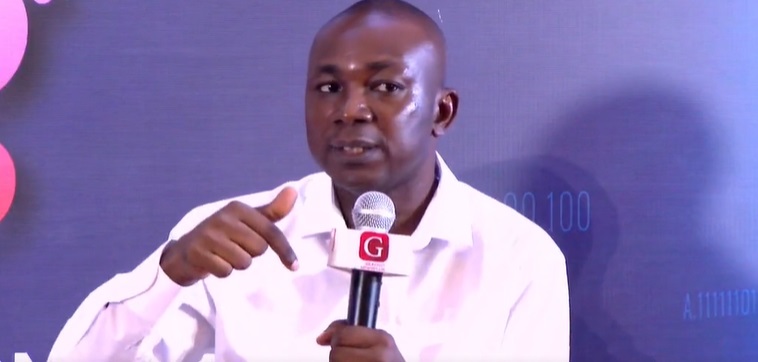Ghana risks higher taxes and weaker public services unless inefficiencies in state enterprises are addressed, Professor Godfred A. Bokpin has said.
He said the Electricity Company of Ghana (ECG) alone drains more resources from the national budget than the agriculture, health, and education sectors combined.
In a radio interview with Joy FM on Monday [September 1, 2025] the Professor of Finance said Ghana’s budget structure has created a system that rewards failure, leaving ordinary citizens to pay through levies and higher costs.
Prof Bokpin was reacting to the 2024 State Ownership Report of the State Interests and Governance Authority (SIGA), released on Friday, August 29, 2025.
While the report acknowledged some gains, he maintained that inefficiencies in state-owned enterprises continue to weigh heavily on the public purse.
He noted that government’s “other expenditure” category, which includes transfers to cover shortfalls in the energy sector and support to state enterprises, had grown sharply.
“In 2023, we allocated GH¢23.7 billion. In 2024, it went up to GH¢27.7 billion. In 2025, we allocated GH¢33.6 billion, which was slightly higher than the budgetary provision for capital expenditure,” he said.
According to him, these allocations represent a culture of rewarding poor performance. “This country has accepted poor performance, and we will reward it adequately,” he said. He added that the burden is shifted to households through levies such as ESLA and the GH¢1 fuel levy, noting that “nobody gets sacked” for underperformance.
Turning to the energy sector, Prof Bokpin said ECG holds the future of the economy. “ECG will make or break this country,” he said. “We currently don’t have enough power even for an 8-hour economy, let alone a 24-hour economy.”
He cited ECG’s own records to support his concerns. “ECG revenue collection is at 85 percent while the global average is 98 percent. Losses are as high as 28 percent compared to the global benchmark of 10 to 15 percent,” he said. “Across indicators, there isn’t much that gives you hope without drastic reforms.”
Prof Bokpin warned that between now and 2029, budgetary provisions to cover ECG’s inefficiencies will exceed the annual allocations for agriculture, trade, health, and education. “Without fixing ECG, there is no way we can allocate appropriately to agriculture, health, education or social spending,” he added.
He also pointed to rising administrative costs across the public sector. Referring to the National Health Insurance Scheme, he said: “In 2008, 86 percent of the total allocation was spent on claims. By 2024, only 56 percent went to claims, with 44 percent consumed by administrative costs. This pattern runs across many entities.”
Prof Bokpin attributed the problem to governance failures rather than macroeconomic pressures. He argued that some state enterprises have become avenues for political patronage, procurement abuse, and waste. “No arrest, no prosecution, no recovery,” he said.
As part of the way forward, he urged bold restructuring, especially of ECG.
He said government should consider reducing its ownership in some state enterprises, noting that SIGA’s report shows joint ventures with lower state stakes tend to be more profitable.
He added that Ghana’s IMF-supported programme includes a structural reform benchmark for private sector participation in ECG.
“Government should be bold,” he stressed. “If it’s not support from the World Bank or the IMF, we ourselves are not investing in improving the efficiency of our state-owned enterprises. After 68 years of independence, are we serious?”
“It’s inefficiency, it’s corruption, it’s greed. This is what has brought us here, Prof Bokpin added

